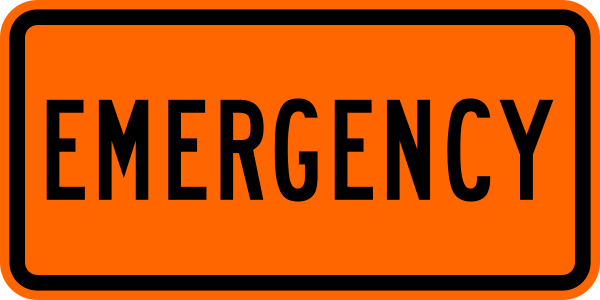
Last night, I went on a late night tweet storm about quickly converting your face-to-face course to an online course due to corona virus closures, so I thought I’d write it up here in case it would be useful to have it all in one place. Also Sean Michael Morris went on a much better one, so you really could just read that and stop reading here. University of Washington and Stanford have already closed their campuses, and it’s very likely more will follow. So what can you do, besides wash your hands, practice social distancing, and follow instructions from the CDC and your local authorities? Begin to prepare for the likelihood of moving your classes online.
To be clear, I’m not suggesting that anyone work while sick! I’m suggesting that now, while you’re not sick, is the time to think about and prepare an emergency plan for your classes, so that if you need it, you’ll have it. I’ve already signed up for Laurel Eckhouse’s Political Science Guest Lecture Volunteer spreadsheet which is awesome- if you’re in political science, sign up; if you’re not, consider starting one for your discipline.
And by the way, for everyone who does convert to a different modality, can I suggest keeping track of the work and time you invest? So that after the shock of the virus hopefully subsides, we can all work to advocate for proper recognition of and compensation for that labor, especially for the contingent and lowest paid among us, both retroactively and in institutional disaster preparedness planning in the future? How do we advocate in the future to ensure that all students have reliable home internet access?
In the more immediate term, give yourself, extend to students, and try to build into your class as you make adjustments to it, grace & flexibility. No one was expecting this when they built their syllabus or signed up for classes. It is serious and it is scary, so be patient with yourself and your students!!! How you manage your class virtually/online will vary widely, as all of our classes and teaching styles vary widely. Which they should- only you know yourself, your students, and your classes. I don’t think institutional band-aids- “we’ve created a course on Blackboard/Canvas/etc for you with everything you need- just grade it” will be very helpful, even if they’re available. Doing the same thing you do online that you did face to face does not work very well (in my experience), and also leaves a lot of advantages/affordances on the table. You are probably going to do things differently, so here are some resources that might help you think through what you might want to do in your own class. FYI, I am only recommending things that are not too technically difficult (gauged by “can I button mash/google my way through this?” which is my usual MO and good approach because, IT Support is likely to be stretched thin)
Consider groups (which can be done in your LMS or through google docs) for building liveness and community into virtual learning; it’s also a great way to make sure folks don’t get lost in a big crowd (similar to the way small discussion sections are used in large face-to-face lectures). If you spend time in your face to face class dissecting texts, check out Hypothes.is for social annotation (they’ve even added LMS integration. Try focusing on what you want students to DO- replace the time students would have been in class with time spent doing/making things- editing Wikipedia (Wiki Education can help you get started), writing content for the course (check out Open Anthology of Earlier American Literature and A Student’s Guide to Tropical Marine Biology for inspiration), blogging, making videos or podcasts or memes or powerpoint slidedecks.
My own thinking and approach on this stuff has been greatly influenced by exploring Open Educational Resources (#OER) and Open Pedagogy (#OpenPedagogy or #OpenEducationalPractices)- the more you can explore about this, the more you might find there are some upsides to teaching in the open and/or online. Some books (available freely online) to get you started and fired up: Open Pedagogy Notebook and An Urgency of Teachers. Get on Twitter and read up from Robin DeRosa, Rajiv Jhangiani, Jesse Stommel, Maha Bali, and Sean Michael Morris.
Finally, don’t think you have to make everything yourself. Look for things you can reuse or adapt- this not only saves you time but often results in better materials. I’ve tried recording my own lectures, but it took a long time, captioning was a pain, and honestly, they weren’t that good. For my Intro US classes, I find the Crash Course in US Government and Politics series on YouTube to be pretty great for the way I teach my classes; the videos are shorter than my lecture captures and far better produced (plus they’re captioned for accessibility and subtitlted in several languages as well).
Wash your hands and good luck.

